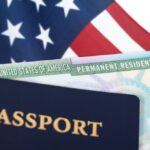The IRC recently launched the Virtual Resettlement Line (VRL), combining the success of both the virtual APA (VAPA) program and the Uniting for Ukraine Support Line (U4USL). VRL launched on April 3, 2023, and is a one-stop resource for any prospective clients who are not yet connected to a resettlement agency or who are struggling to access benefits or resources in their community. VRL is staffed by English-, Ukrainian-, Russian-, Dari-, and Pashto-speaking virtual navigators. VRL is open 9am – 5pm ET Monday – Friday and can be reached by calling +1 (212) 551 – 3010 or emailing VRL@rescue.orgmailto:VRL@rescue.org. Please share widely with service providers and clients who may benefit from accessing this line! Note: the Virtual Resettlement Line replaces VAPA and U4USL, which are now closed.
This blog post includes contributions from: Emma Shah, Director, VAPA; Umniyah Aljandeel, Program Officer, VAPA; Julieta Guzman, RA/Assurance Liaison Coordinator, VAPA; and Salma Zewari, Monitoring and Evaluation Officer, VAPA.
During phase one of the Afghan evacuation, approximately 74,000 Afghan newcomers were processed through eight military Safe Havens across the United States. Of these 74,000 Afghan guests, approximately 12,000 decided to depart their Safe Havens independently. These individuals used their own funds and support systems to resettle, frequently in Northern Virginia, California, and parts of Texas. Many of these so-called “independent departures” are humanitarian parolees who are eligible to receive Afghan Placement and Assistance (APA) services, yet have not been able to access these services through a resettlement agency. To reach these eligible clients, the Virtual Afghan Placement and Assistance (VAPA) program was launched in late March 2022. This blog post explains how refugee service providers can engage the VAPA program to help meet the initial resettlement needs of eligible Afghan clients who could benefit from a remote service option. VAPA assured clients are also referred to supplemental ORR services as applicable and available in their local community.
What is the Virtual Afghan Placement and Assistance Program (VAPA)?
Funded by the State Department Bureau of Population, Refugees, and Migration (PRM), the Virtual Afghan Placement and Assistance (VAPA) provides virtual services and support for Afghan humanitarian parolees who have not yet accessed APA services. In partnership with The Independence Fund, a nonprofit organization founded to support veterans and their families, and through a call center, The Independence Line, any Afghan national can call or email for referral assistance using the contact information below.
Potentially eligible clients are referred to VAPA, which is overseen by the International Rescue Committee (IRC)’s VAPA team. The team does a deeper dive into eligibility to ensure the client is a humanitarian parolee and has not yet received APA services. The VAPA team also checks local resettlement agency affiliate capacity to see if there is the possibility of serving the clients in-person. If no local affiliate or institutional partner is able to provide APA services to the client, they are assured to and enrolled in VAPA.
Once assured to and enrolled in VAPA, clients are eligible to receive direct monetary assistance via wire transfer. The amount of direct assistance per client is the same as the amount available via the APA program. They also receive virtual navigation of resources and referrals to in-person services as applicable. Clients identify needs for themselves and their families, and VAPA navigators work together with clients to meet these needs.
As of May 9th, 2022, the program has:
- Received referrals for 73 cases and 190 individuals for VAPA;
- Assured 21 cases and 44 individuals to VAPA;
- Connected a total of 37 cases and 104 individuals to APA services (either virtually via VAPA or in-person with a resettlement agency or institutional partner); and
- Provided over $18,000 in direct assistance to VAPA-assured clients.
Who is eligible for VAPA?
Any Afghan national who meets all three of the following criteria is eligible to be enrolled in VAPA:
- arrived as a humanitarian parolee into the United States between August 15th, 2021 and September 30th, 2022; and
- has not received any APA services from a resettlement agency or institutional partner; and
- independently departed a Safe Haven or has never been to a Safe Haven.
What services are provided through VAPA?
Clients assured to VAPA can receive the following services:
- Direct assistance: clients receive a transfer of direct assistance of $1,225 per humanitarian parolee in the family in the case via wire transfer. Each adult in the case receives an individual transfer, and funds for children within a household are split equally on their parents’ transfers.
- Referrals and resources: clients are paired with a remote Navigator (similar to a case manager) who refers clients to appropriate and accessible services. These may include immigration legal services, health care services, mental health services, appropriate benefits and social services, English language instruction, and cultural orientation resources. Navigators may also support social security and employment authorization document (EAD) retrievals, enrollment in employment services, and in some cases school enrollment for children.
How can someone access VAPA?
Any potentially eligible Afghan can be in touch with The Independence Line by calling +1-855-341-5456 or emailing TIL@loyalsource.com to speak with a navigator who will evaluate their VAPA eligibility. This is the only way for a potential VAPA client to access services. The VAPA team does not take referrals who have not first been in touch with The Independence Line.
What to know more about VAPA?
The VAPA team will be happy to receive questions and inquiries from refugee service providers by email: VAPA@rescue.org. (This email address is not intended for clients.)










